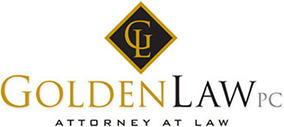Like most Indiana residents, you’ve likely encountered financial challenges at some point in life. Perhaps your family welcomed several new babies but did not receive an increased income in the same amount of time. Maybe you’re one of many who lost a job in recent years. Are you helping a child pay for college? Are you a struggling business owner? These and other issues may spark financial distress that leads to bankruptcy.
Did you cringe when you read that last line? Many people associate negative connotations with Chapter 7 or Chapter 13 bankruptcy. However, it’s not uncommon for such people to have a misguided understanding of bankruptcy because there are many myths in circulation. It’s always best to speak to someone well-versed on such issues to obtain accurate information so that you can make informed decisions if a financial crisis hits.
BANKRUPTCY RUMORS THAT ARE NOT NECESSARILY TRUE
Have you hesitated to seek more information on Chapter 7 or Chapter 13 bankruptcy because people have told you that filing for bankruptcy is the same as admitting financial failure? You’ll be glad to know this is not factual and actually contradictory to the fact that filing for bankruptcy often helps people restore financial stability, which is the opposite of financial failure.
Another bankruptcy myth worth busting states that mishandling of finances is a primary cause of needing debt relief. In fact, if you’re like many other people in Indiana and throughout the United States, issues beyond your control may have sparked your financial distress, such as unexpected job loss or medical emergencies.
THINGS TO REMEMBER WHEN CONSIDERING FILING FOR BANKRUPTCY
If your finances have gotten out of hand and you’re exploring debt relief options, it’s best to avoid getting information from unreliable sources. You’ll be able to determine a best course of action more easily by seeking support and recommendations from someone who has firsthand experience in filing for bankruptcy or has a professional background in bankruptcy laws.
Not all debts are dischargeable, such as child support, owed taxes or court-ordered payments for damages filed against you in a personal injury claim. Just as it’s not true that you can automatically erase 100% of your debt by filing for bankruptcy, it’s also not true that you’ll automatically lose all of your assets if you do file. It’s best to seek understanding as to which bankruptcy options may best apply to your particular circumstances before making any decisions.
